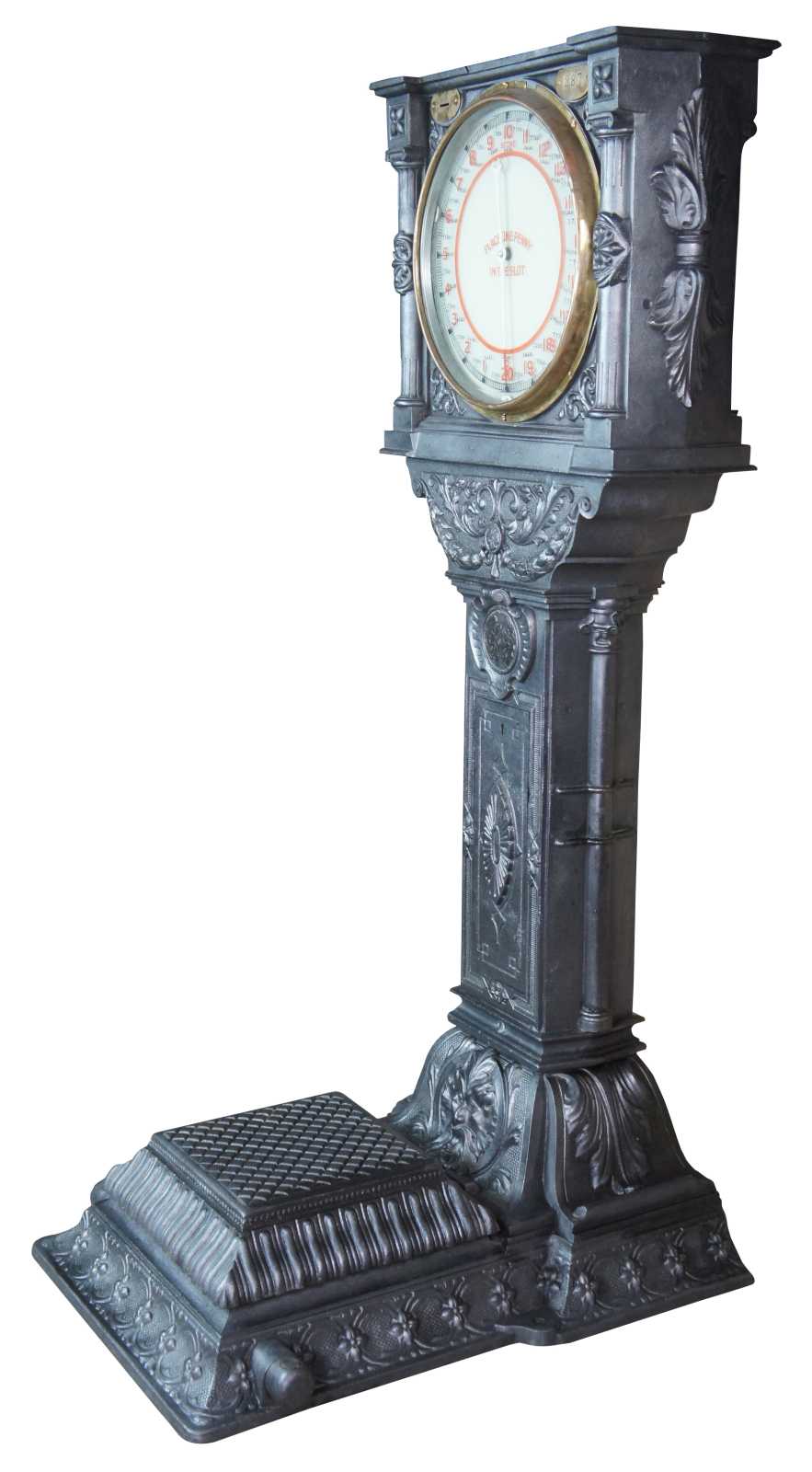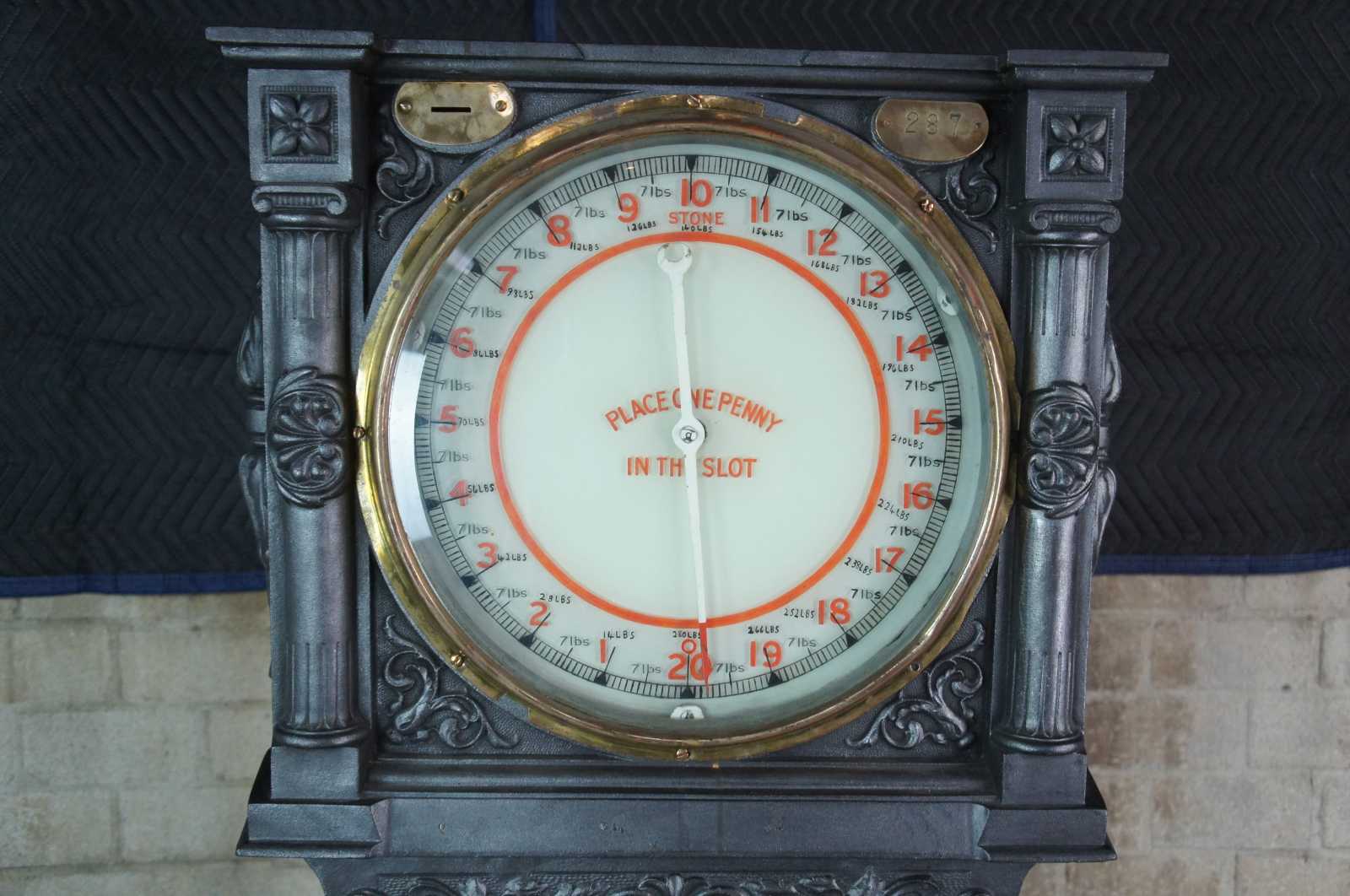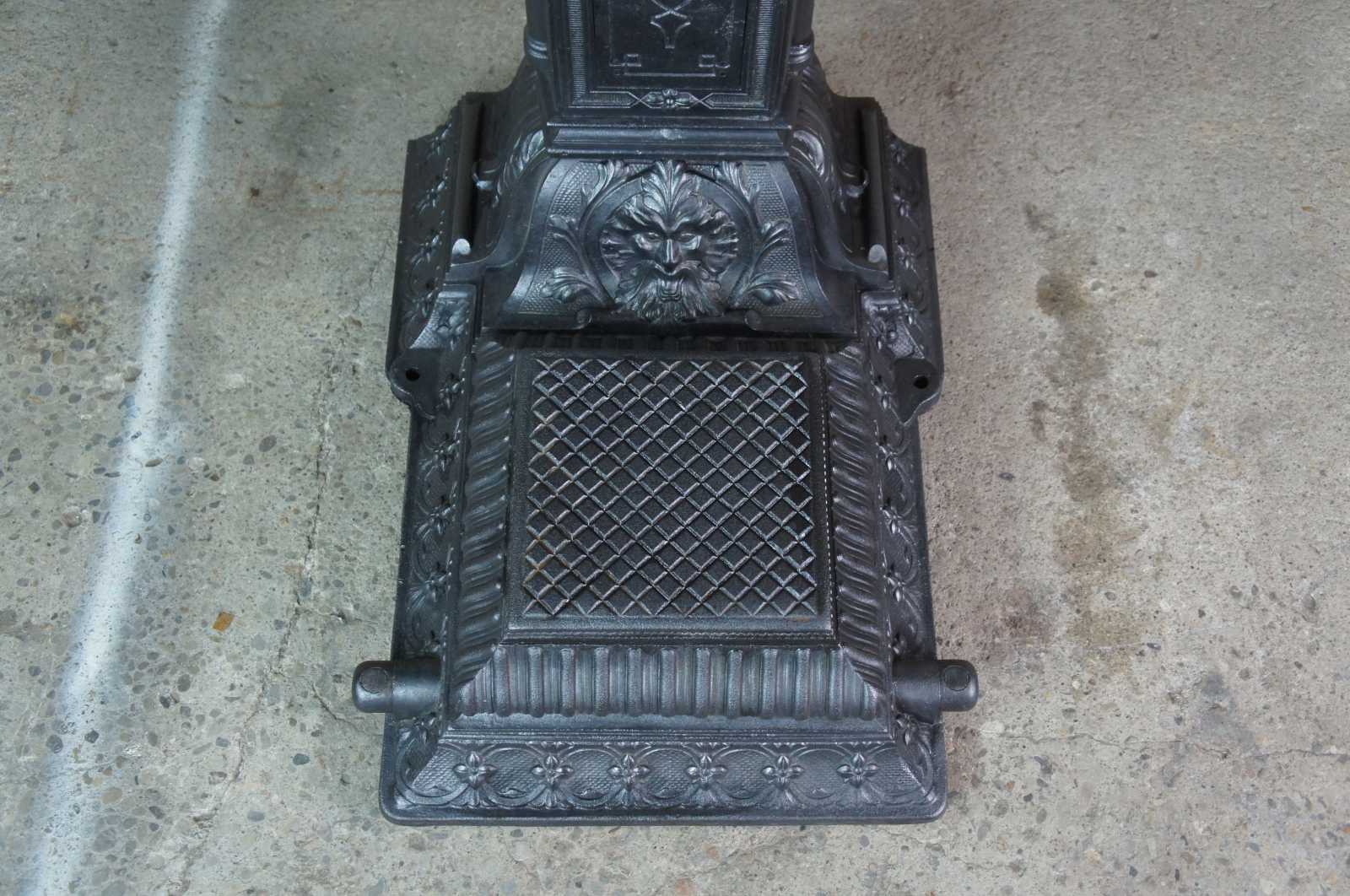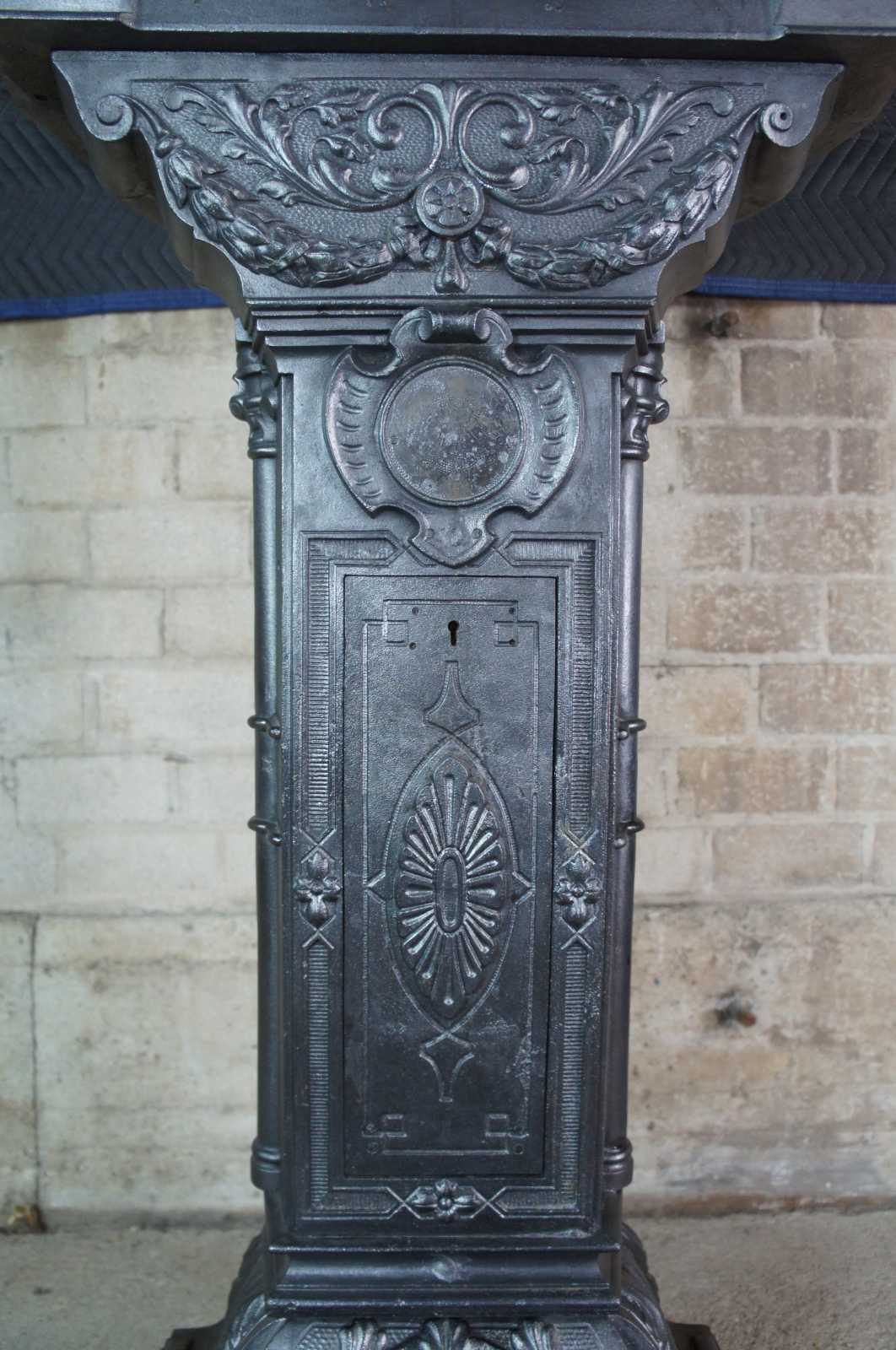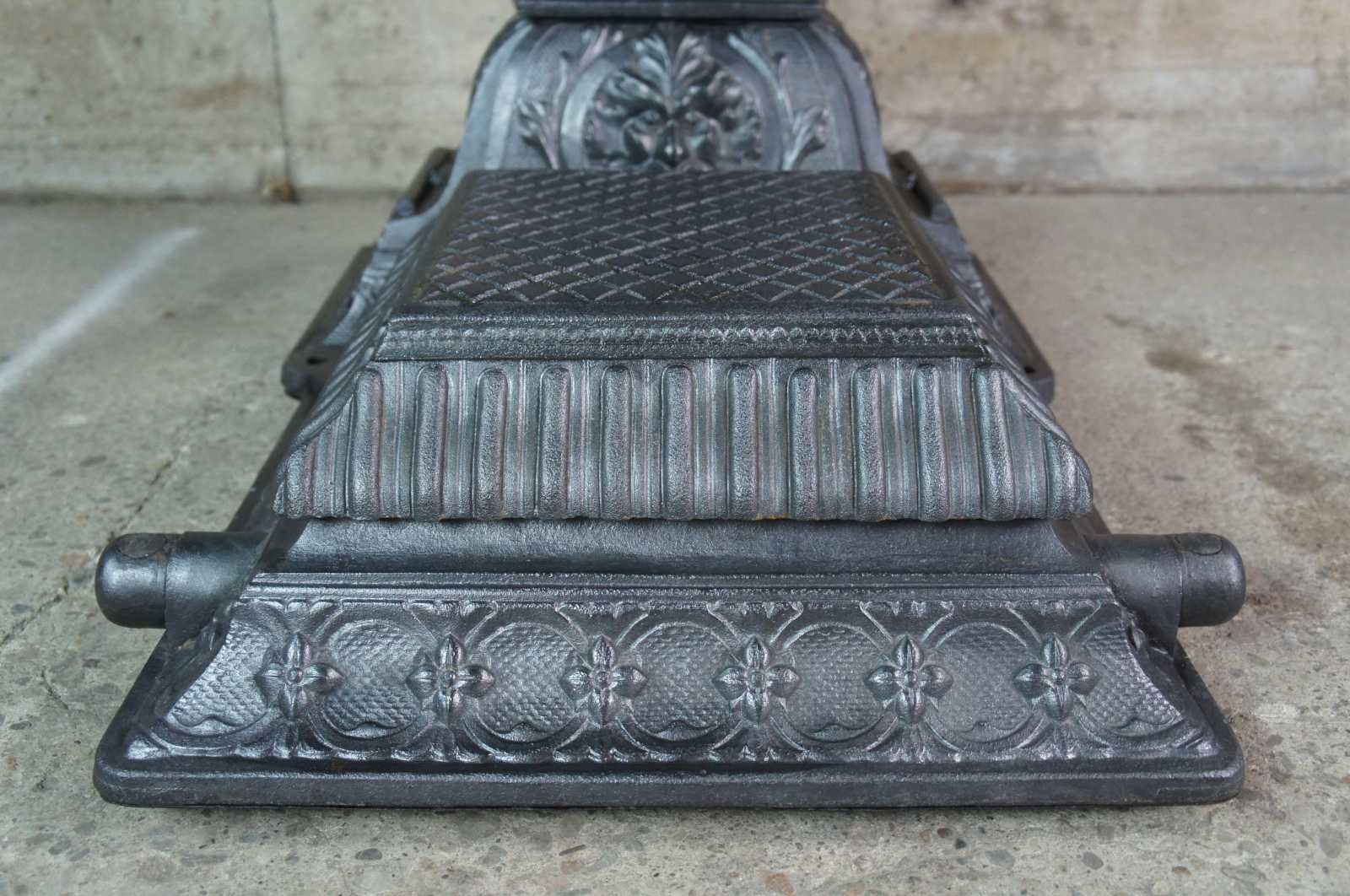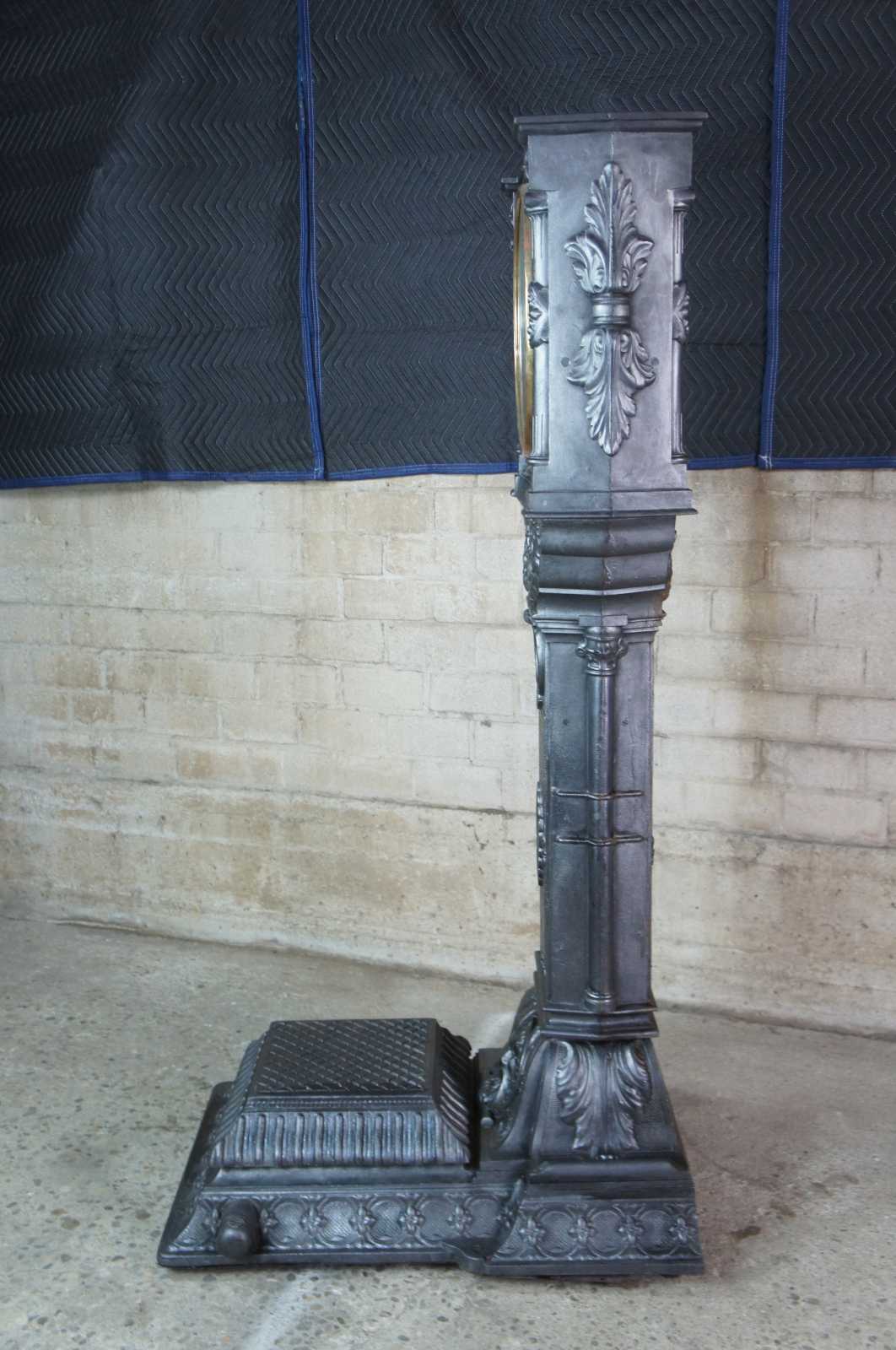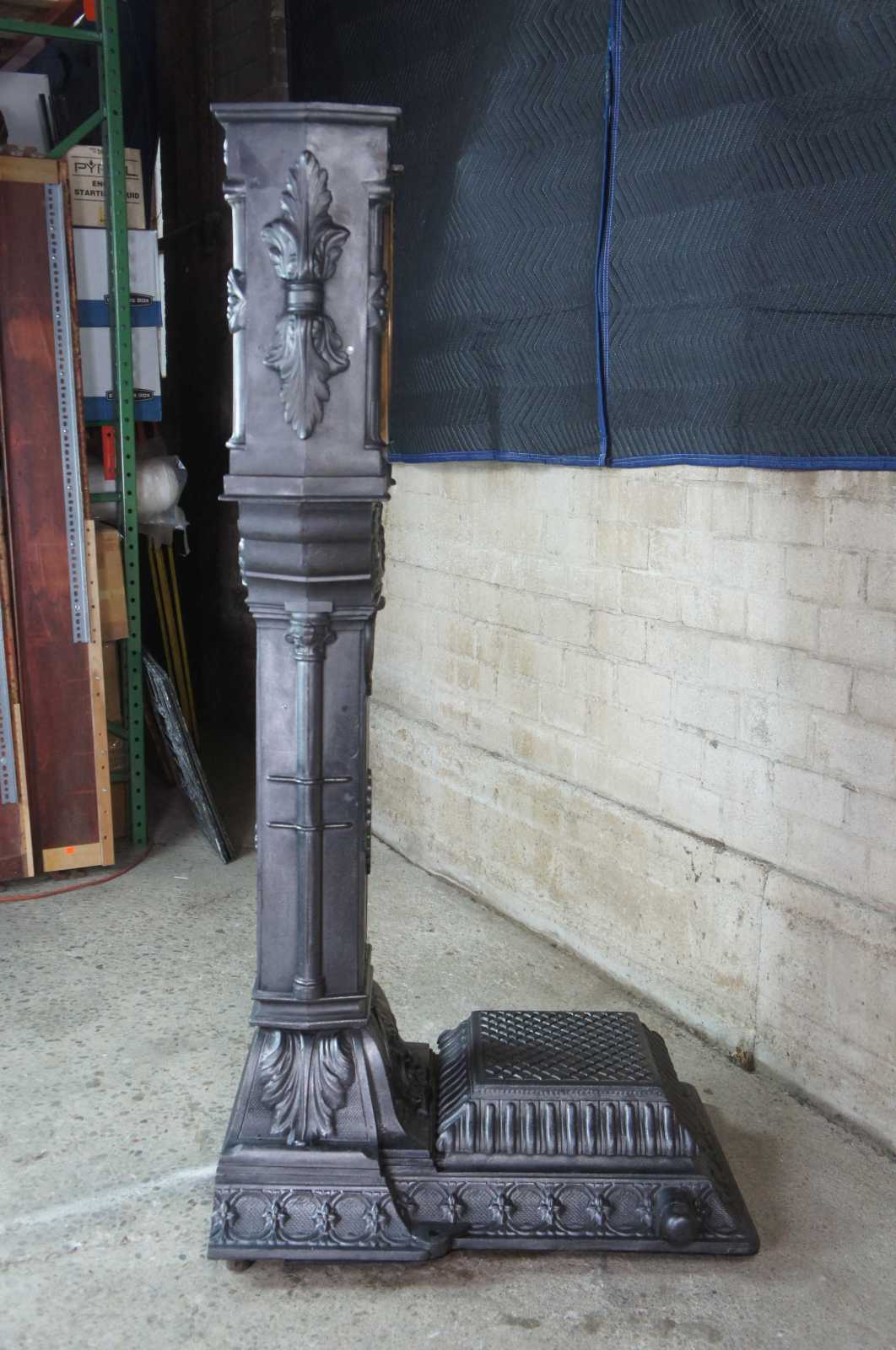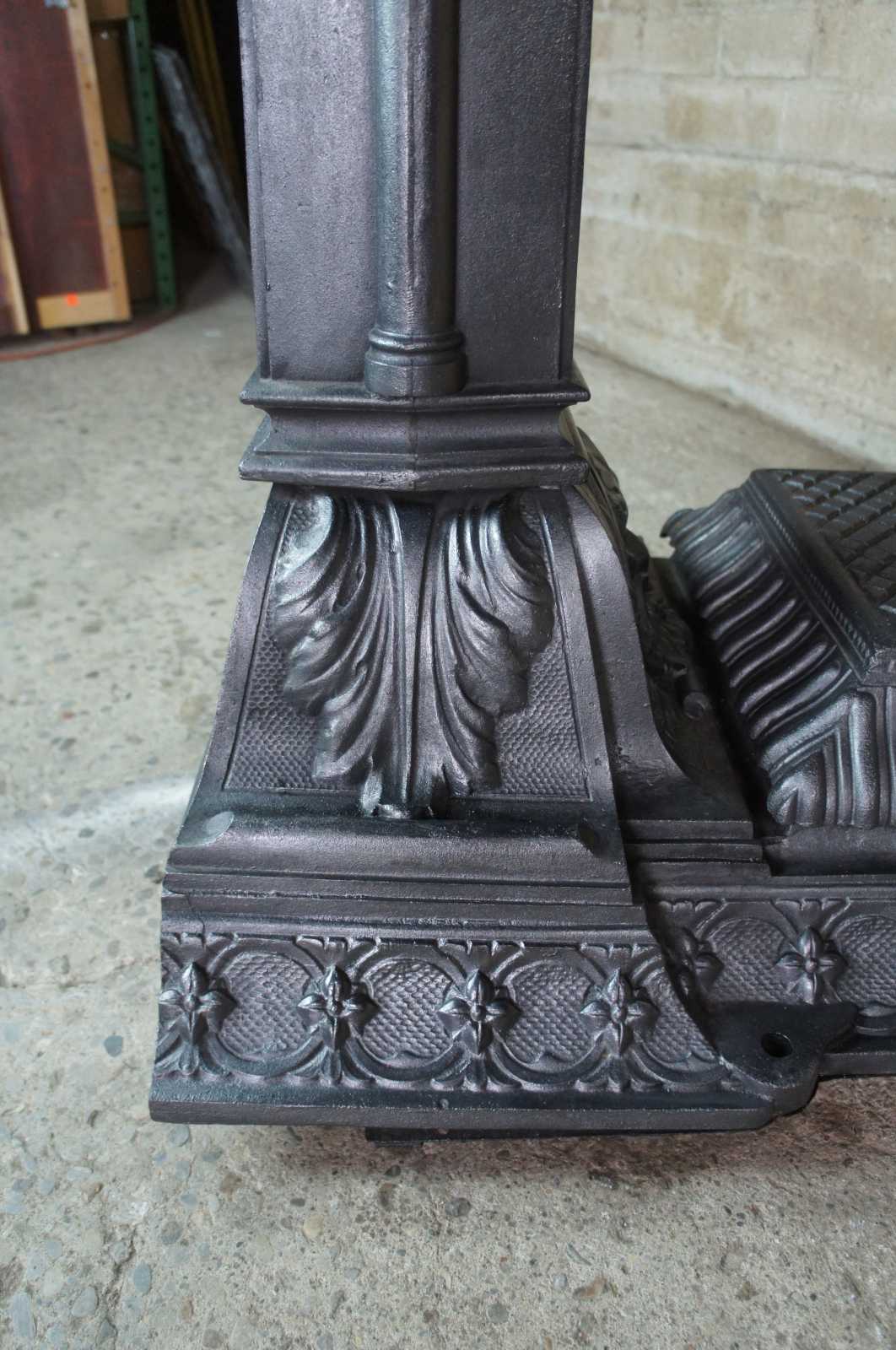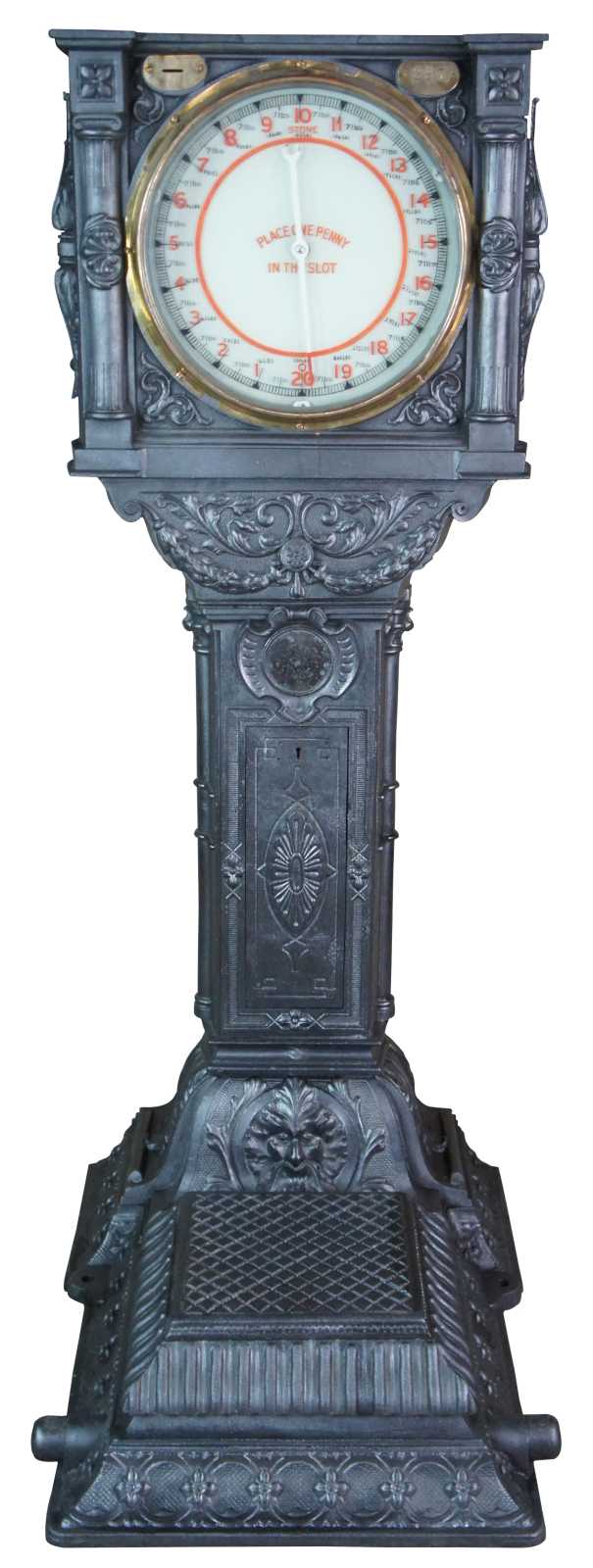
Rare Antique Henry Pooley English Iron Station Platform Penny Scale Northwind
Sold
Shipping:
Free Shipping Included
Delivery:
Estimated 2-15 Business Days
Payments:
Credit Card, Check, Cash, PayPal, Apple Pay, Venmo
Returns:
30 Days 100% Money Back Guarantee, Buyer Pays Return Shipping
Description
Exquisite museum quality English Imperial penny scale, circa last
half 19th century. Attributed to Henry Pooley and Son. An example of which can be found in The National Railway Mesuem in York, England. Made from heavy cast iron with a gunmetal finish featuring high relief scalloping, acanthus leaves, florets and a beautiful North Wind Face in-front of the lattice grate. The North Wind face is a design that became popular in England in the 18th and 19th century as whimsical furniture began to sweep through towns as it made its way across the Atlantic. The North Wind face is said to be seen whispering through furniture as it blows wooden tendrils of wind from its mouth.
The dial of the scale is neatly mounted between roman inspired columns. It features a hand painted enameled face with brass bezel and beveled glass. The face is marked in stones the Imperial measuring system which was later customized with markings for pounds. 1 stone is equal to 14 pounds. The center of the face reads "Place One Penny In The Slot". The scale is labeled via brass plate #287.
This is an automatic public weighing machine, No.287, made in England by Henry Pooley and Son of Albion Foundry, Liverpool, which would have been used on a railway station platform during the fsecond half of the nineteeth century.
This Automatic Weighing Machined was used on railway and tram premises throughout England. At the time, most people did not have scales at home to measure their weight so these machines in public places served the purpose. Users paid with a 'penny-in-the-slot' and could compare their weight with the average weights indicated on the face of the scale according to Dr Hutchinson's Table.
History
Henry Pooley and Son
of Albion Foundry, Liverpool
Pooleys were a firm of mechanical engineers, founded in Liverpool in the 18th century. Shown as Pooley of Liverpool in Heath Mill Lane, Birmingham.
c.1790 Business established by Henry Pooley senior, to make scale beams
c.1830 Henry's son Henry Pooley was admitted to the firm as a partner
c.1835 They started to make platform scales. Their main office was at the Albion Foundry, Liverpool.
1835 Railway weighbridges were introduced by the firm.
Henry Pooley and Son was the biggest manufacturer of weighing machines in its time. They were often used in quarries to weigh rock.
Some machines were shipped to America during the Gold Rush.
1851 Award at the 1851 Great Exhibition.
1869 Advert. Weighing apparatus. Contractors for railway plant. general iron and tin plate merchants.
1876 Mention that they are not exhibitors at the Royal Agricultural Show at Birmingham of their weighing equipment.
1885 Gold medal for invention in respect of platform weighing machine and self-indicating apparatus, poly-graded steelyard, and automatic grain scale.
1894 June. Royal Agricultural Society's Show. Cattle weighbridge.
1896 The main works were moved from Liverpool to Kidsgrove, Staffs., and the head office to Birmingham "Mr. J. R. Chater, M.I.M.E., son of the chairman of Henry Pooley and Son, Ltd., was manager of the Kidsgrove engineering works, hitherto known as the Union Foundry, for the manufacture of weighing machinery. In future, the works will bear the name of the Albion Foundry, the designation of Messrs. Pooley’s works in Liverpool and Glasgow."
1896 Advertisement for sale of equipment at Albion Foundry, including steam cranes and a 45-HP steam engine.
1897 Company founded.
1900 The company was registered on 20 March, to take over the business of weighing machine manufacturers of a private company of similar title.
c.1904 Acquired Hodgson and Stead Ltd
Works acquired in Smethwick for manufacture of smaller scales.
c.1912 Acquired Bartlett and Son Ltd, enabling the company to make a full range of scales and weighing machines
1913 The company was absorbed by W. and T. Avery.
1914 Private company.
1914 Manufacturers of weighbridges, weighing machines, scale beams, weights and shop fittings. Employees 1,500.
1923 Patent - A new or improved means for electrically indicating and recording weighments.
1924 Patent - Improvements in and connected with printing or recording mechanism for weighing apparatus.
1929 Listed Exhibitor - British Industries Fair. Refers to Bartlett and Son Ltd.
1961 Manufacturers of weighing machines and scales. 330 employees.
Condition
Good antique condition, wear and distressing commensurate with age and use, staining and oxidation.
Dimensions
26" x 33" x 67"h
